[First appeared in The Sunday Times, 15 February 2015.]
Over the decades Derry’s contributions to the club football championship have become part of the bones, meat and sinew of the competition. They have delivered romance and hard-headed winners, created shocks and barged open doors to success previously bolted shut to other clubs and counties.
In 1972 Bellaghy spent the week getting used to the fiercesome skull and crossbones emblazoned on the UCC jersey so it wouldn’t faze them before they took down a team of young greats in the first All-Ireland club final. In 2002 Ballinderry recycled the indignity of an eight hour journey to Thurles for the All-Ireland final against Nemo Rangers while Croke Park was being rebuilt into the last coals that fired them to a great victory. Lavey invaded Croke Park in 1991, beat Salthill in their final and left a marker for Derry to follow in 1993.
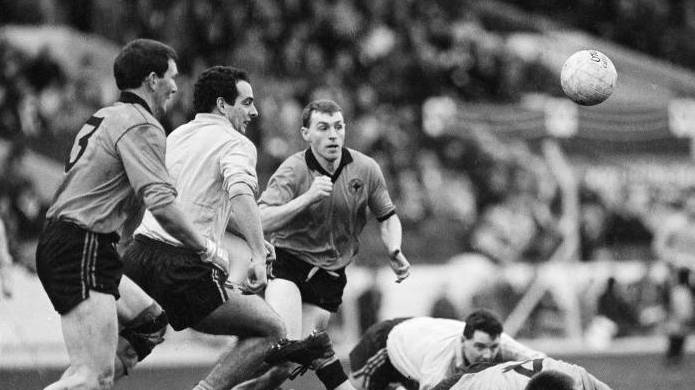
Ray McManus, Sportsfile
Today Slaughtneil follow the fluttering banners of the neighbours that went before them with the same self-belief and remarkable expectations of themselves. No county has delivered as many Ulster club champions or as many different teams into the Ulster final. Their three All-Ireland titles from four different finalists all came from clubs coralled into a 15 mile patch of countryside across south Derry. Only Dublin and Kerry can claim more.
“There’s that much of a competitive edge between the clubs that getting out of the county is like releasing a pressure valve,” says Colm McGurk, who won an All-Ireland title with Lavey in 1991. “The tension is that high, it’s a severe preparation for anything.”
Their success was rooted first in fierce rivalry and the hard work that grows good players. Back in the 80s Derry schools and underage teams started winning Ulster titles and making Croke Park, obliterating any inferiority complexes that might have taken hold as they got older. It all fed into a county championship that thrived on bitterness and the constant need for teams to better each other in every way and in every game.
“There’s no such thing as a league game not mattering,” says Ballinderry’s Conleith Gilligan. “Last year coming up to the championship Derry lost players injured to club league games. Compared to most other counties, most county players in Derry play the majority of their club league games. They’re expected to be there for every game. You want to play in them all. You might play a league game with Derry on Sunday and a club game on a Thursday night. Pride makes you play the extra game even if your body doesn’t need it.”
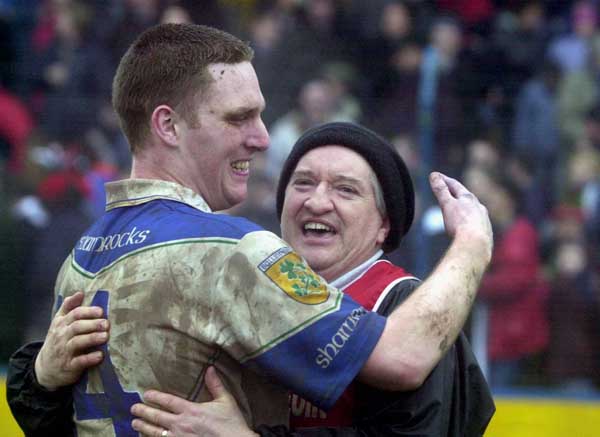
David Maher, Sportsfile
It creates an attitude that expects success. Before the 2002 All-Ireland final Ballinderry were seen as handmaidens against the bluebloods of Nemo Rangers but flattened them by seven points. They celebrated that night at a victory banquet in a Thurles hotel. “There wouldn’t have been a notion of such a night if we’d lost the game,” says Gilligan. “I don’t know if anyone even thought of that.”
“It’s a mindset,” says former Bellaghy player Karl Diamond. “There’s no fear. When you play club football this time of year, it’s usually a one or two point victory. When it’s down to that, it’s a belief thing. The bar is set so high by previous teams. You’re constantly looking over your shoulder seeing how the neighbours compare.”
For all the benefits, club rivalries have spilled into Derry dressing rooms and poisoned promising teams. In the early 90s Eamonn Coleman forced a handful of players from warring clubs to make peace and pulled a brilliant generation together to win an All-Ireland title. “Before 1993 there was an undercurrent in the county,” says Diamond. “Teams didn’t like each other. Players didn’t pull together with Derry. Coleman nipped all that in the bud.”
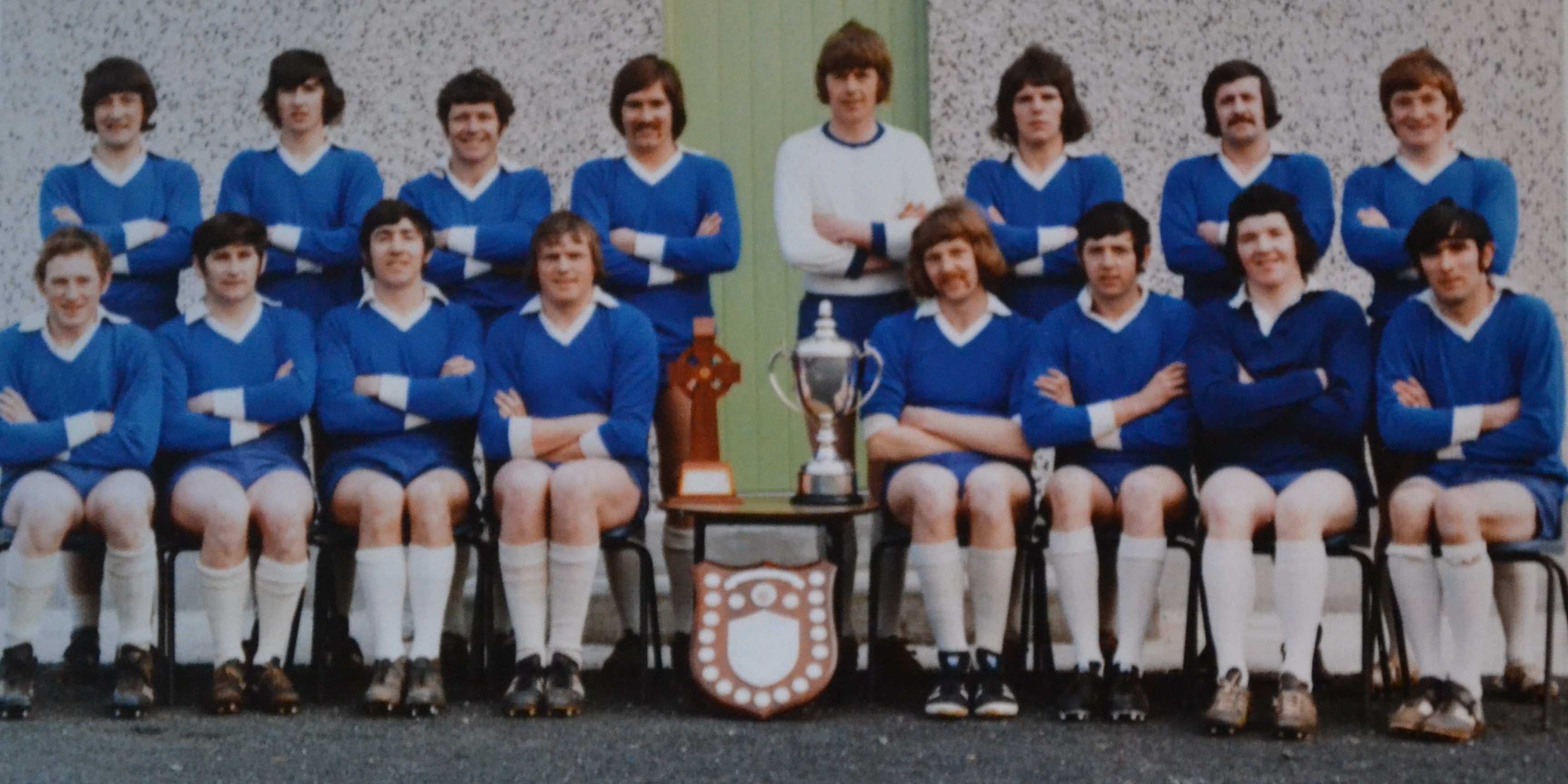
Even now pockets of rival clubs will row in behind the champions when they move beyond Derry, but the support is fickle and selective. “It’s said that the biggest cheer when Damian Cassidy missed the penalty (for Bellaghy in the 1995 All-Ireland final) was in a pub in Lavey,” says Diamond. “But the players we played with would’ve cheered us on. Anyone who’s been through it knows what it takes.”
Diamond visited Slaughtneil last week to watch them train and noted the similarities with Bellaghy in 1994/95, a team with a core of experience freshened by the courage of youth unblemished by dark thoughts of Kieran Donaghy and Austin Stacks and Kerry. “If you get to an All-Ireland semi-final you shouldn’t feel inferior in any way,” he says. No fears and no doubts in front of the neighbours. What divides the clubs has always made them stronger.
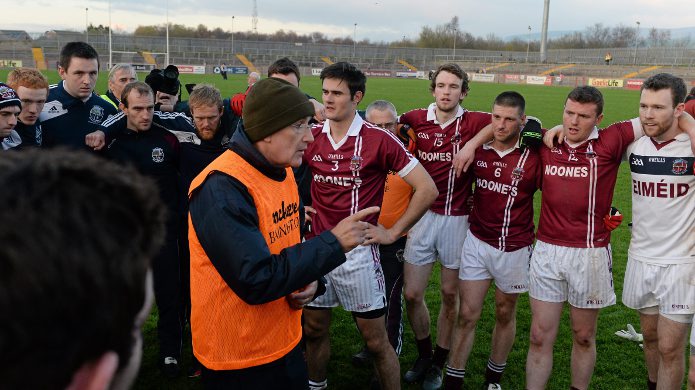
Oliver McVeigh, Sportsfile
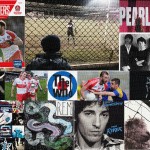
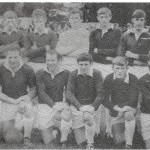
[…] Read more here. […]